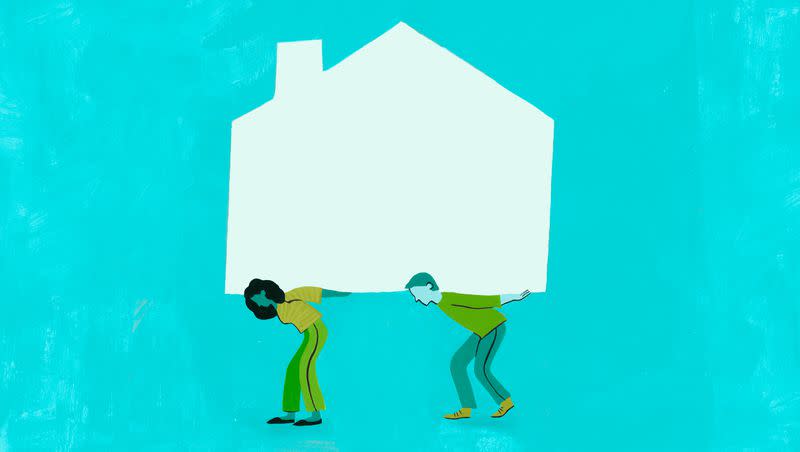Opinion: Worried about income inequality? Move to Utah

Economic inequality has become a growing point of discussion in America over the last decade — and for good reason. The real-life consequences of a disparity in incomes spans physical, mental and social domains.
By virtually no measure is it good when the gap between the richest and poorest in a society grows bigger — certainly not as big as it has become today. That is what makes a new analysis of U.S. state-level data so interesting. In particular, Utah had the lowest inequality score of any state in the nation.
How we measure income inequality
One of the most established measures of income inequality is something called the Gini index. The Gini coefficient incorporates a variety of financial measures into a single statistic, which summarizes the dispersion of income across a given populace. The coefficient ranges from 0, indicating perfect equality (where everyone receives an equal share), to 1, perfect inequality (where the wealth is concentrated in a subset of people).
Since 1967, there’s been a steady rise in this index — with a notable 20% increase from 1980 to 2016. The number keeps going up, a concern that continues to spark public discussion.
Given the growing public curiosity about faith and its influence on society, I decided to run some numbers on inequality that looked at Latter-day Saint heavy areas.
Faith and income inequality
It may surprise some to learn that Utah has one of the lowest Gini inequality scores in the nation — as demonstrated visually by this map from the U.S. Census Bureau.

Looking at the data over a five-year period, Utah pulls ahead of the other leading states and has the lowest inequality score. Additionally, the lower the percentage of church members in the county, the higher likelihood of economic inequality — a finding that is highly statistically significant.
Since correlation does not equal causation, we can’t dismiss the possibility that people of faith tend to aggregate in areas already disposed toward economic balance. But neither ought people dismiss the possibility that faith itself is operative and active in helping bring this to pass.
No doubt, this connection between church population and inequality is multilayered — with other variables such as race and urbanicity probably playing a meaningful role, but the clear association showing up in the data is, nonetheless, striking.
Related
Challenging popular bias
We sometimes hear about how Christians aren’t empathetic towards the disadvantaged because they tend to support Republican policies. This demonstrates that, our political proclivities notwithstanding, Latter-day Saints tend to form more equal societies, relatively speaking.
This data aligns with Harvard economist Raj Chetty’s famous finding that Utah has one of the highest rates of upward economic mobility of any state in America (defined as the odds that a child will earn more than his or her parents did at the same age).
In their 2014 study “Where Is the Land of Opportunity?: The Geography of Intergenerational Mobility in the United States,” the research team identified Salt Lake City (along with San Jose, California) as having the highest rate of absolute mobility in the nation. The Salt Lake City area was also the first among the 50 largest com-muter zones (aggregations of counties) in the country for absolute up-ward mobility.
More specifically, the likelihood of moving from the poorest income threshold to the richest was 10.8% in Salt Lake City compared with the lowest in the country, 4.0% in Charlotte. This led Chetty’s team to conclude, “Some cities — such as Salt Lake City and San Jose — have rates of mobility comparable to countries with the highest rates of relative mobility, such as Denmark.”
It was datapoints like this that prompted Washington Post columnist Megan McArdle to later opine about the remarkable levels of community solidarity and trust in Utah — quipping that Utah is “a bit like Sweden might be if it were run by the U.S. Chamber of Commerce.”
Say what you want about Europe — and religion as a whole — but data like this is hard to overlook.
Stephen Cranney is a nonresident fellow at Baylor University’s Institute for the Studies of Religion and teaches at The Catholic University of America.
